Find Help
More Items From Ergsy search
-
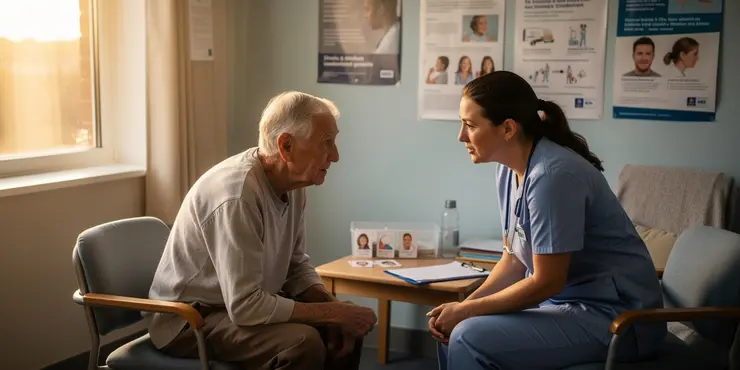
Stroke - Speech and Language Therapist's Experience
Relevance: 100%
-
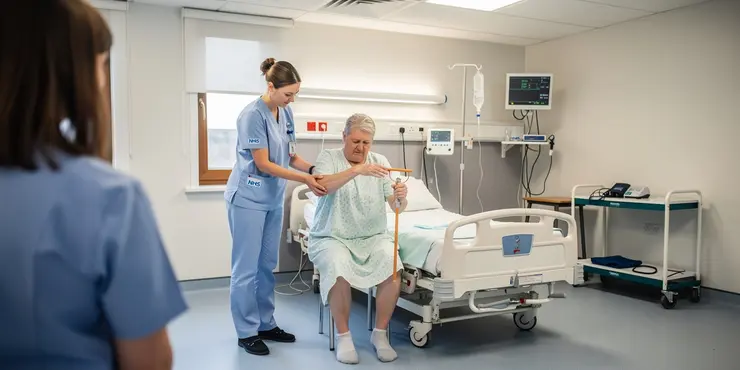
Vale Stroke Unit
Relevance: 37%
-
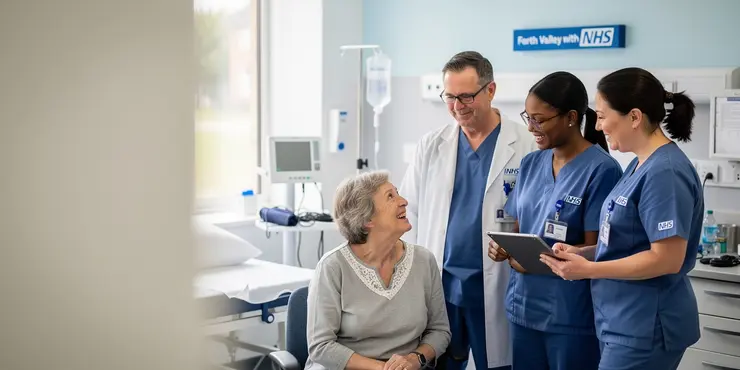
NHS Forth Valley’s Stroke Team
Relevance: 34%
-
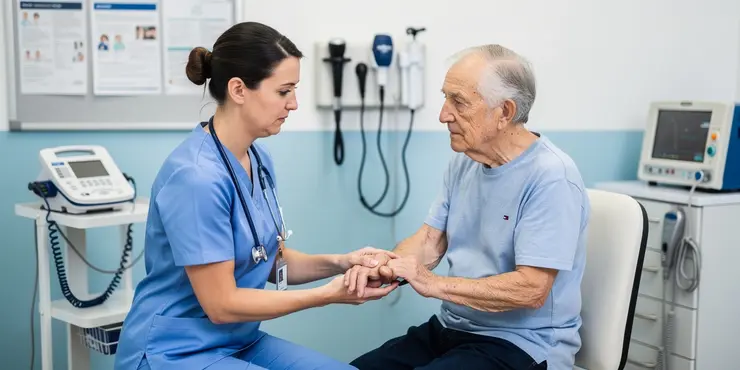
Assessing the stroke patient
Relevance: 34%
-
How does motor neurone disease affect speech?
Relevance: 31%
-
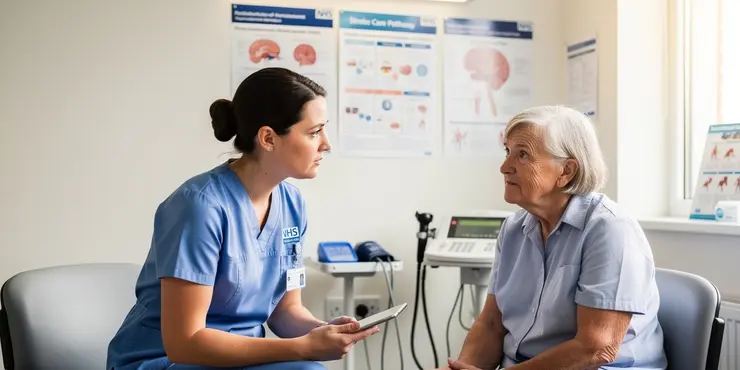
Gaining consent from stroke patients
Relevance: 30%
-
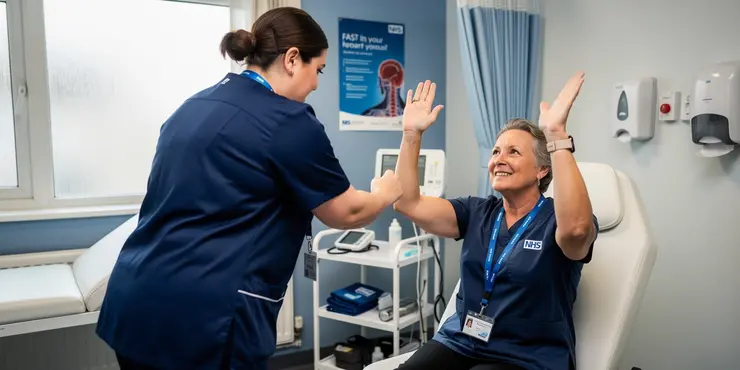
NHS Here for You – Stroke
Relevance: 29%
-
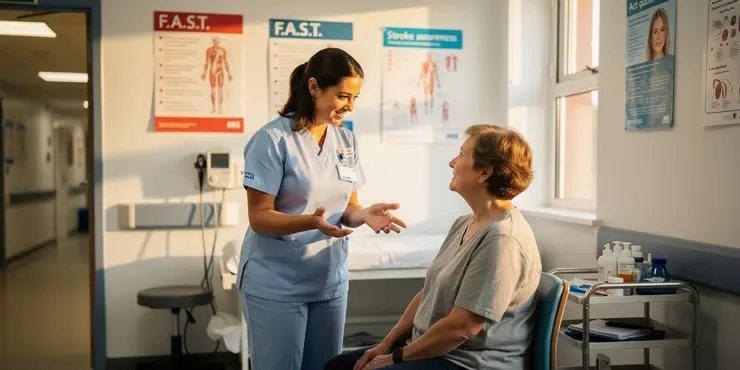
When Stroke Strikes Act F.A.S.T. | NHS
Relevance: 27%
-
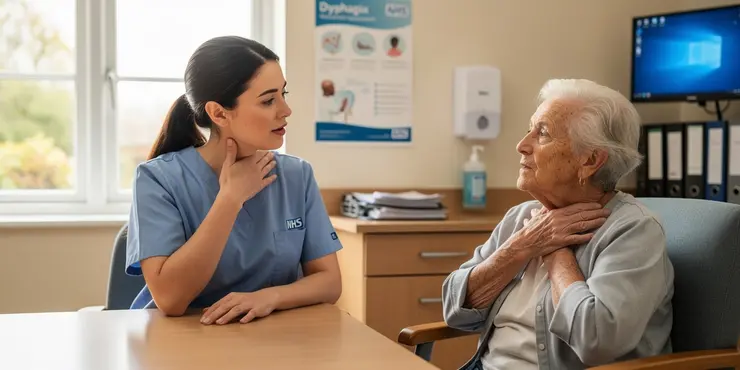
Swallowing awareness - dysphagia
Relevance: 25%
-
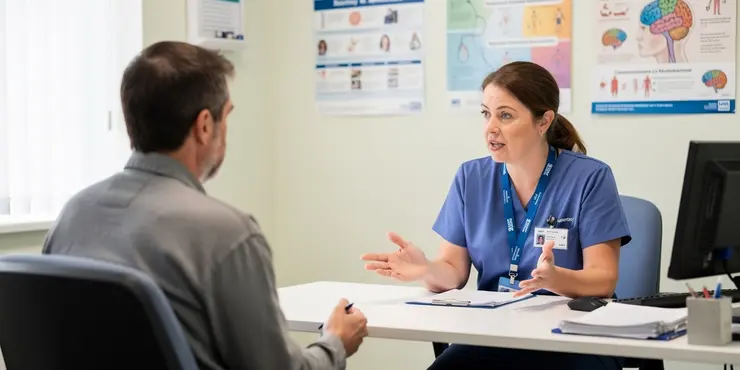
South Tees NHS - What is aphasia and how can you help?
Relevance: 25%
-
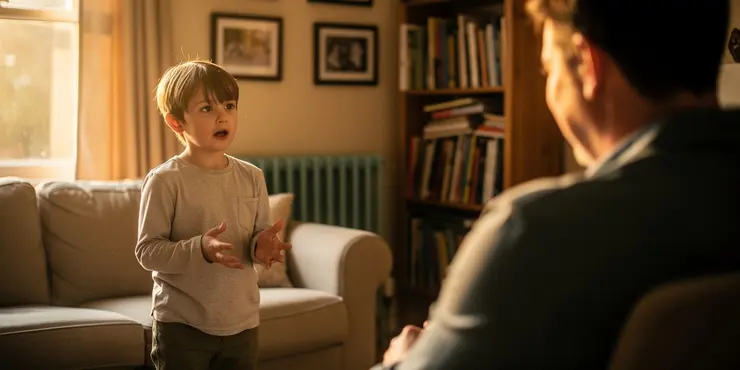
Stammering myth 4: You should ignore a child's stammer
Relevance: 23%
-
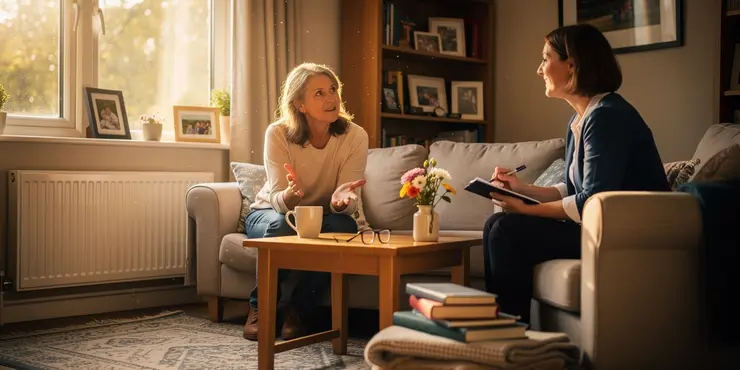
Joan's story - Aphasia Awareness
Relevance: 23%
-
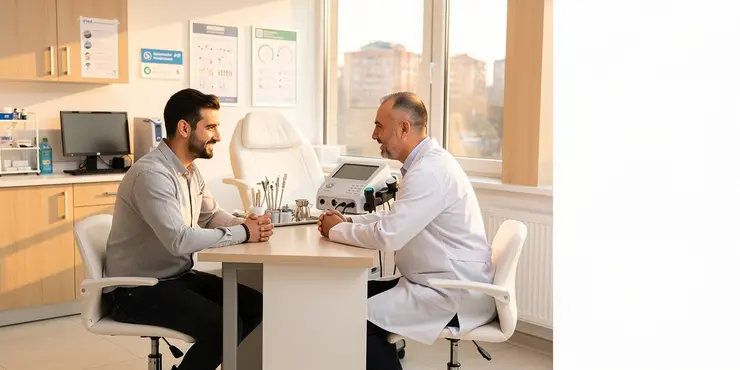
Is language a barrier for a hair transplant in Turkey?
Relevance: 23%
-
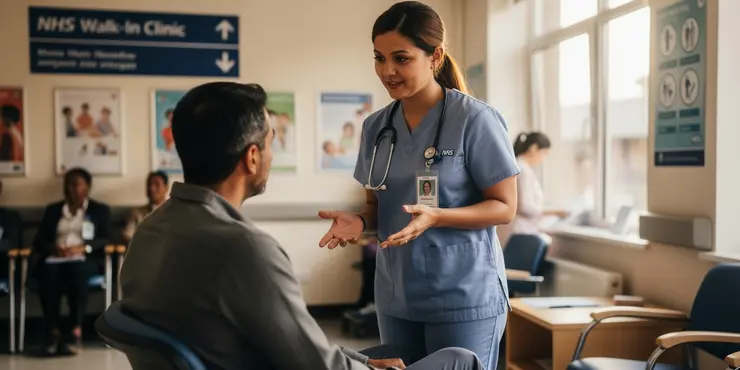
Will language barriers be an issue in EU hospitals?
Relevance: 22%
-
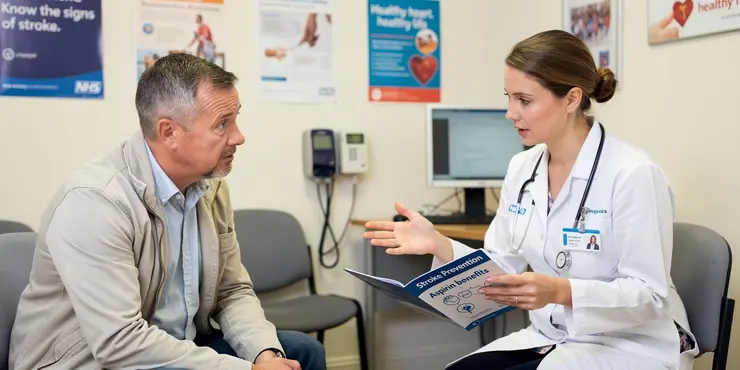
Can aspirin help in reducing the risk of strokes?
Relevance: 21%
-

Why do some children stammer?
Relevance: 21%
-
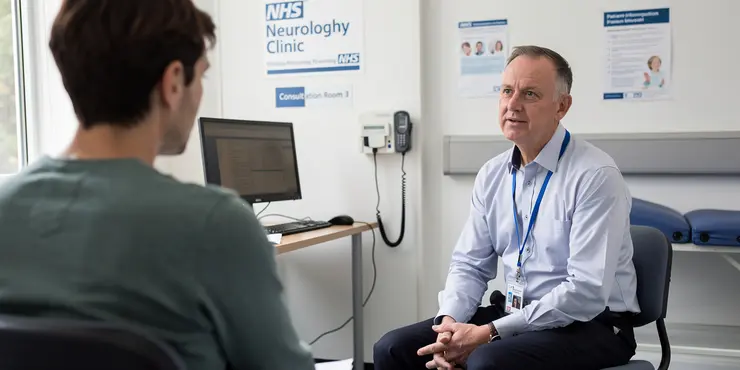
What kinds of specialists are involved in treating Huntington's disease?
Relevance: 20%
-
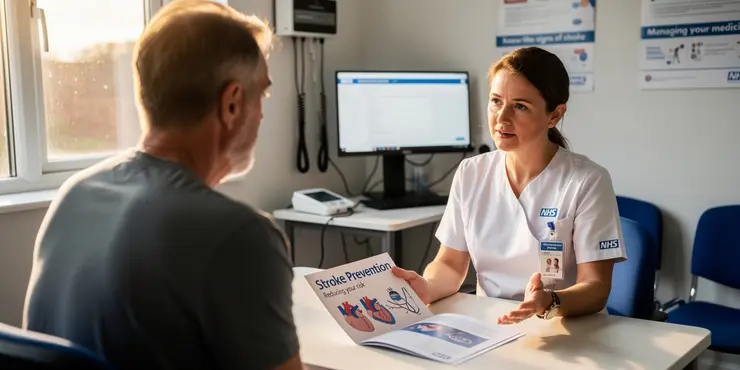
Are anticoagulants effective in reducing stroke risk?
Relevance: 20%
-
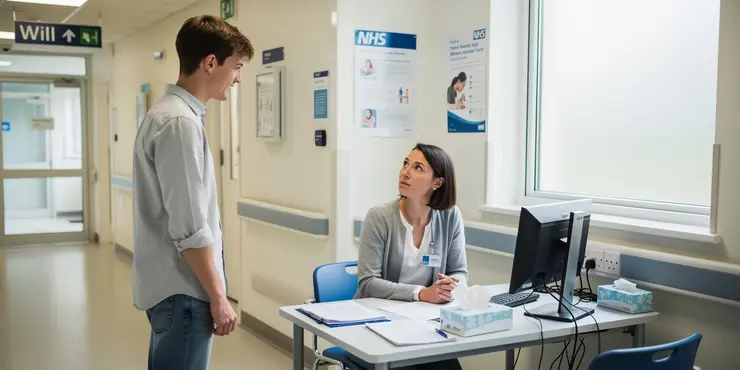
Will's story on having therapy - Stammering
Relevance: 20%
-
Are there any recent advancements in medications for stroke prevention?
Relevance: 20%
-
What languages do NHS dental clinics typically support?
Relevance: 20%
-
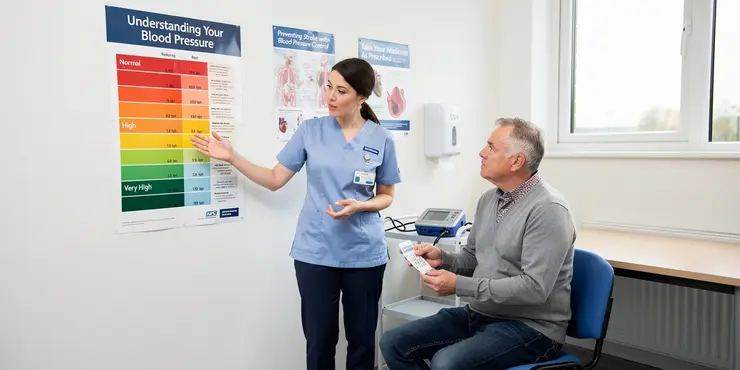
Can antihypertensive medications reduce stroke risk?
Relevance: 19%
-
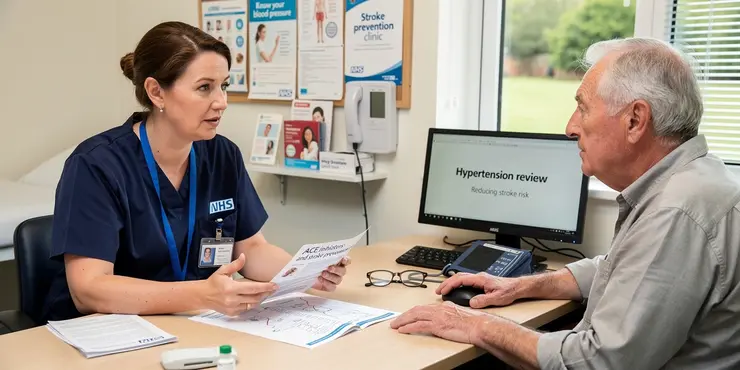
What role do ACE inhibitors play in stroke prevention?
Relevance: 19%
-
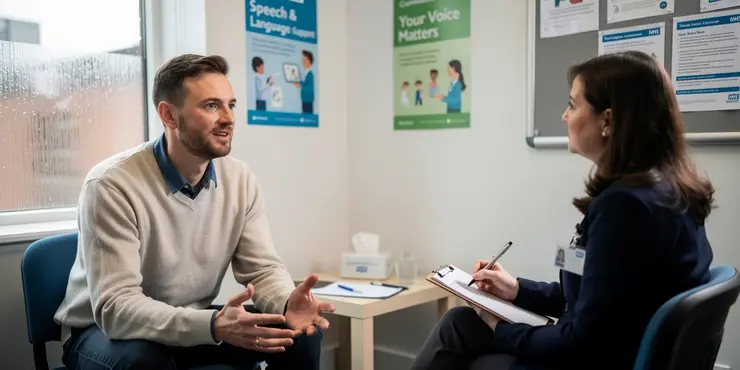
Adam's story on stammering - Therapy
Relevance: 18%
-
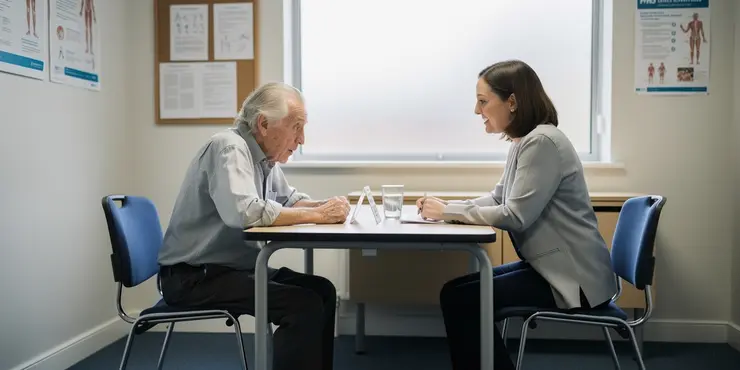
How does motor neurone disease impact swallowing?
Relevance: 18%
-
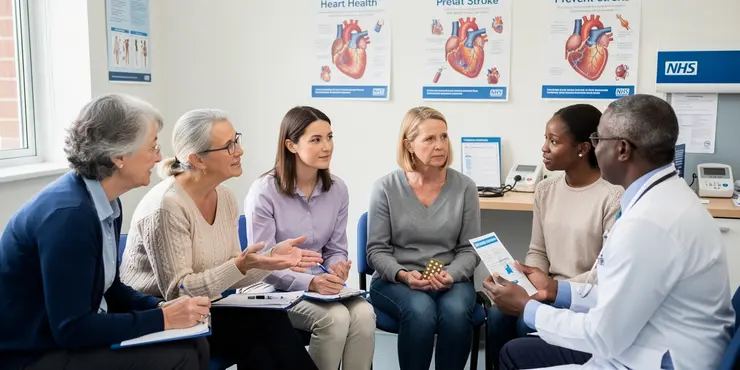
What drugs can reduce the risk of heart-attack and strokes?
Relevance: 18%
-
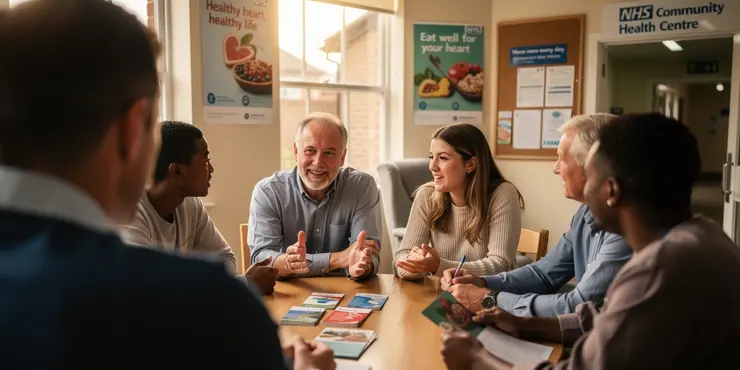
What is the role of lifestyle modification in heart attack and stroke prevention?
Relevance: 18%
-
Do over-the-counter medications help in preventing heart attacks and strokes?
Relevance: 18%
-
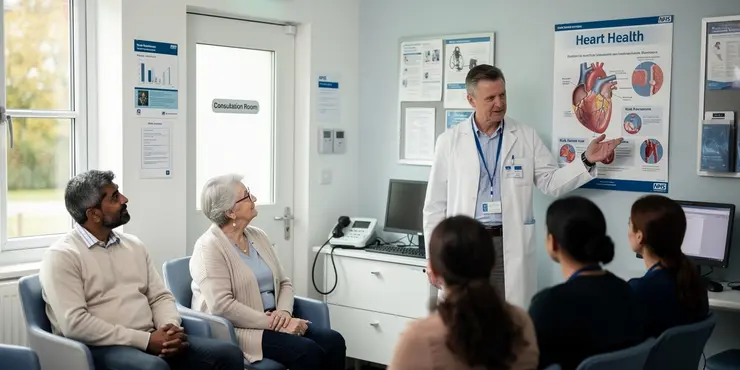
Do all patients need medication to prevent heart attacks and strokes?
Relevance: 18%
-
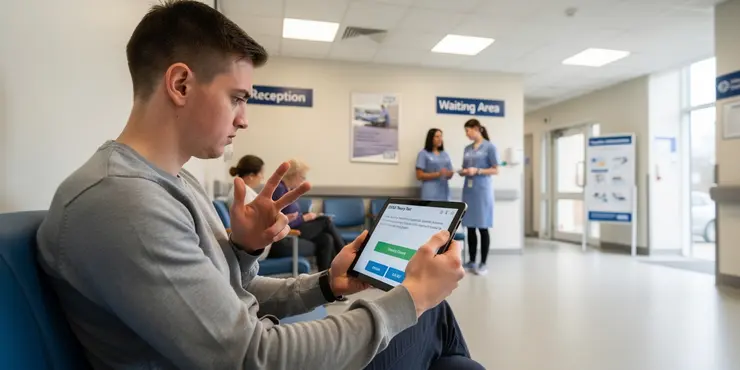
Is the DVSA Theory Test available in British Sign Language (BSL)?
Relevance: 17%
-
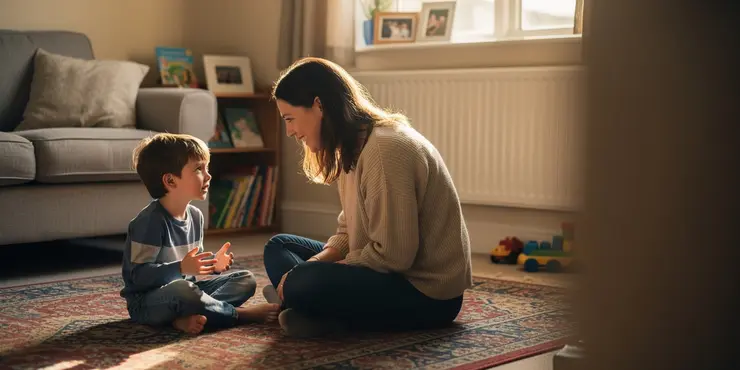
Practical strategies to support young children who stammer
Relevance: 17%
-
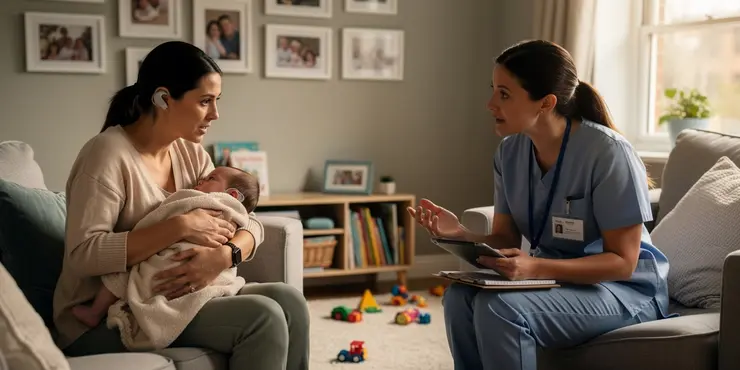
My baby has a hearing loss - what next?
Relevance: 17%
-

How does autism affect communication?
Relevance: 17%
-
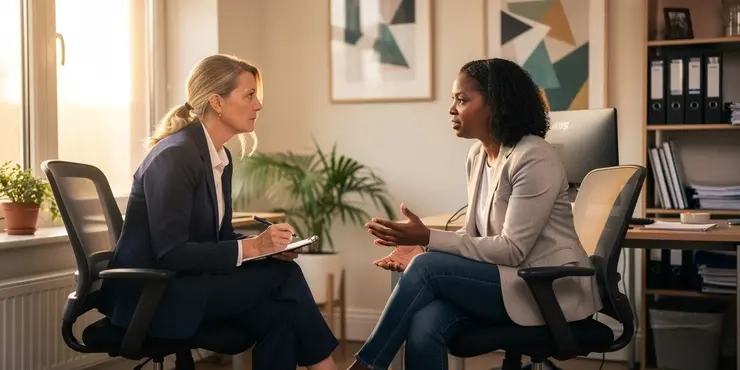
Redundancy Coaching Couch 4:Redundancy and Language
Relevance: 16%
-
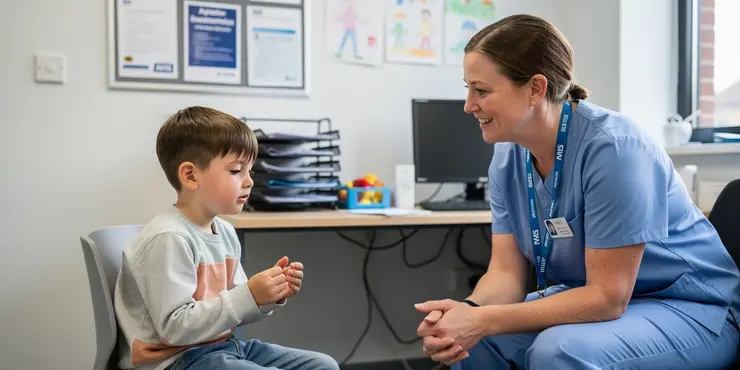
What are some common types of SEND?
Relevance: 16%
-
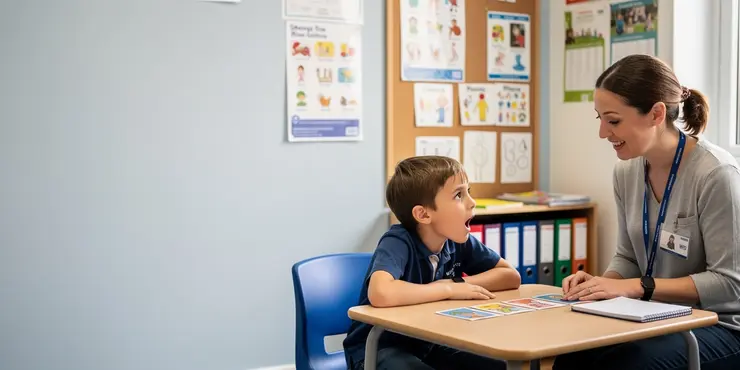
What are some common therapies for autism?
Relevance: 16%
-
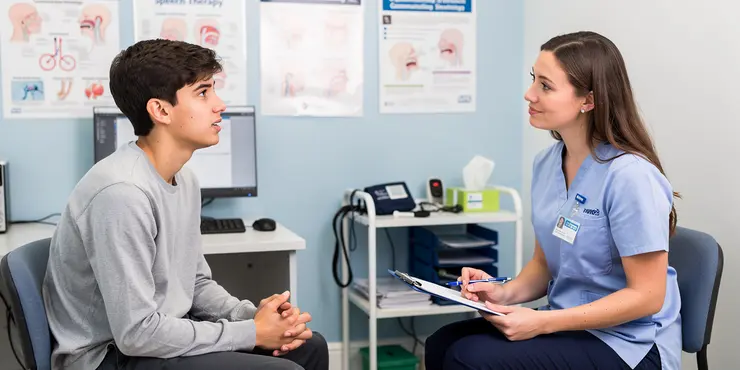
Giving Voice - Stammer and Fluency Problems
Relevance: 16%
-
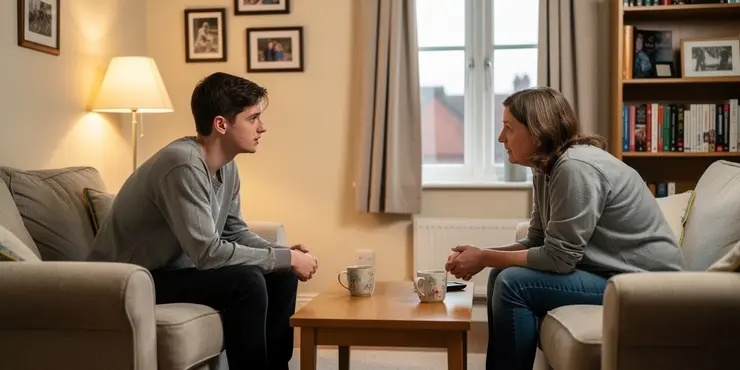
Stammering: How to Help
Relevance: 16%
-
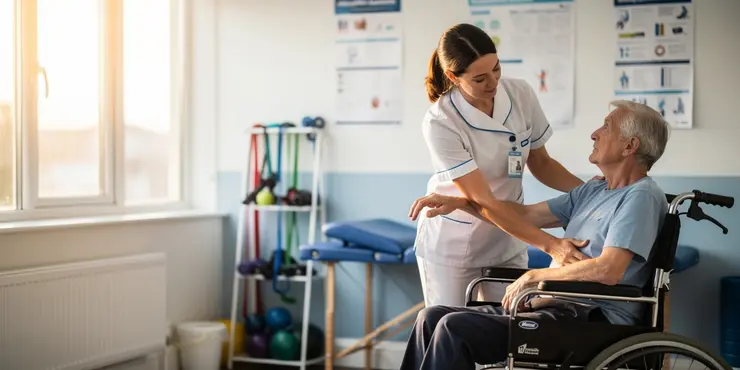
What treatments are available for motor neurone disease?
Relevance: 16%
-
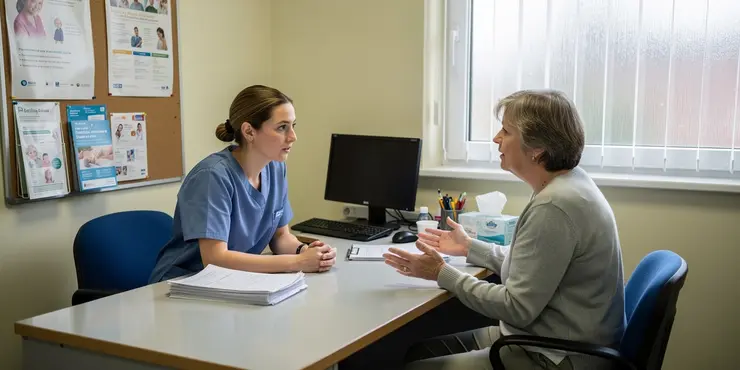
Autism Assessment - What Happens in Your Appointment
Relevance: 15%
Stroke - Speech and Language Therapist's Experience
Introduction to Stroke and its Impact
A stroke, often referred to as a cerebrovascular accident (CVA), is a serious medical condition where the blood flow to a part of the brain is interrupted or reduced, depriving brain tissue of oxygen and nutrients. In the United Kingdom, strokes are a major cause of death and disability. The most common types of stroke include ischemic stroke, hemorrhagic stroke, and transient ischemic attack (TIA). Each type affects brain functions differently, often resulting in communication difficulties, known as aphasia, for the affected individuals.Role of Speech and Language Therapists (SLTs)
Speech and Language Therapists (SLTs) play a pivotal role in the post-stroke rehabilitation process. Following a stroke, many patients experience challenges in speech, language, cognition, swallowing, and overall communication. SLTs conduct detailed assessments to identify the specific nature and extent of these communication difficulties. They then develop personalized therapy plans aimed at improving the patient's ability to communicate effectively in their daily lives.Assessment and Diagnosis
The assessment process involves a series of comprehensive evaluations. SLTs use standardized tests and observational techniques to assess the patient's speech, language, and cognitive abilities. They evaluate the patient's oral motor functions, understanding of language, speech production, and social communication skills. In some cases, SLTs also collaborate with other healthcare professionals to ensure a multidisciplinary approach is taken towards the patient's rehabilitation.Intervention and Therapy Techniques
Intervention strategies are tailored to the individual's specific needs. Therapy techniques may include remedial exercises, visual aids, and the use of technology to support communication. For patients with severe aphasia, the use of alternative and augmentative communication (AAC) methods, such as picture boards or speech-generating devices, may be introduced. SLTs also work on strategies to enhance the patient’s cognitive communication skills, which is crucial for problem-solving and memory.Support and Education for Families
The SLT’s role extends beyond direct patient care; they also provide crucial support and education to families. Training sessions help families understand the nature of the stroke survivor's communication challenges and introduce them to effective ways of supporting their loved one's recovery. This support can range from practical communication tips to emotional support, ensuring a holistic approach to rehabilitation.Conclusion
In the United Kingdom, Speech and Language Therapists are integral to the recovery and quality of life for stroke survivors. By addressing speech, language, and cognitive challenges, SLTs help patients regain independence and improve their ability to communicate, leading to better social integration and overall well-being. The collaborative and personalized approach that SLTs bring is essential for the effective rehabilitation of individuals who have experienced a stroke.Stroke - Speech and Language Therapist's Experience
What is a Stroke?
A stroke happens when blood cannot reach part of the brain. This stops the brain getting oxygen and food it needs. In the UK, strokes can cause death or make people very sick. There are different types of strokes: - Ischemic stroke - Hemorrhagic stroke - Transient ischemic attack (TIA) All these can make it hard for people to talk. This is called aphasia.What Does a Speech and Language Therapist Do?
Speech and Language Therapists (SLTs) help people who have had a stroke. After a stroke, many people find it hard to talk, understand, think clearly, or swallow. SLTs find out what the person needs help with. They make a special plan to help each person talk and communicate better.How Do SLTs Check What Help is Needed?
SLTs check how the person speaks and understands language. They watch how well the person can move their mouth and how they talk with others. SLTs might also talk to doctors and other specialists to decide the best help for the person.How Do SLTs Help People Get Better?
SLTs make a plan just for the person. They use exercises, pictures, or computers to help them talk. If talking is very hard, SLTs might use special tools like picture boards or machines that talk. SLTs also help with thinking skills, like remembering or solving problems.Helping Families Understand
SLTs also help the family of the person who had a stroke. They teach families how to help their loved ones. They give tips on how to talk to them and offer emotional support too.Conclusion
In the UK, Speech and Language Therapists are very important for helping people recover from strokes. They help people talk, understand, and think better. This makes life better for the person and helps them join in with others again. SLTs make a big difference for people who have had a stroke.Frequently Asked Questions
What is a stroke?
A stroke occurs when the blood supply to part of the brain is cut off. Without blood, brain cells can be damaged or die.
How can a stroke affect speech and language?
A stroke can lead to aphasia, which affects the ability to speak, understand, read, or write. Other possible issues include dysarthria (difficulty with speech muscle control) and apraxia of speech (difficulty planning the movements needed for speech).
What are the common symptoms of aphasia?
Symptoms can include difficulty speaking, finding the right words, understanding speech, reading, and writing. It varies from person to person.
How soon should speech and language therapy start after a stroke?
Therapy usually begins as soon as the patient is medically stable, often within a few days of the stroke. Early intervention is crucial for recovery.
What does speech and language therapy involve?
Therapy involves exercises to improve the ability to speak, understand, read, and write. It may also include using alternative methods of communication, like gestures or picture boards.
How long is speech and language therapy needed?
The duration of therapy varies depending on the severity of the stroke and the individual's progress. Some people may require therapy for a few months, while others may need it for longer.
Can stroke survivors regain their speech and language skills fully?
Recovery varies widely. Some individuals may regain most or all of their abilities, while others may always experience some degree of difficulty.
What resources are available for stroke survivors in the UK?
Numerous resources are available including the Stroke Association, the NHS, local support groups, and charities dedicated to stroke recovery.
How can family members support a stroke survivor’s communication?
Family members can support communication by being patient, using simple language, encouraging all forms of communication, and participating in therapy sessions.
Are there any apps or tools that can help with speech therapy?
Yes, there are several apps designed to help stroke survivors with speech and language exercises. Some popular options include Constant Therapy, Tactus Therapy, and Lingraphica.
What should be done if a stroke survivor is not making progress in therapy?
It’s important to discuss concerns with the speech and language therapist. They may adjust the therapy plan or recommend additional assessments.
Can lifestyle changes impact recovery from a stroke?
Yes, maintaining a healthy lifestyle, following medical advice, managing underlying conditions, and maintaining a positive attitude can all contribute to recovery.
Is it normal for stroke survivors to feel depressed or anxious?
Yes, emotional changes are common after a stroke. It's important to seek support from healthcare professionals, support groups, or counsellors.
What is the role of a Speech and Language Therapist?
A Speech and Language Therapist assesses and treats speech, language, communication, and swallowing disorders. They create personalised therapy plans to help patients recover as much as possible.
How can I access Speech and Language Therapy services in the UK?
You can access these services through the NHS by a referral from your GP, hospital, or self-referral in some areas. Private therapy options are also available.
What is a stroke?
A stroke happens when blood can't get to a part of your brain. This can hurt your brain and body.
Signs of a stroke:
- Sudden trouble speaking or understanding
- A face that droops on one side
- Weakness in an arm or leg, especially on one side
What to do:
If you think someone is having a stroke, call emergency services right away.
Helpful tools:
- Picture cards to show feelings or symptoms
- Simple apps to call for help
A stroke happens when blood can’t get to a part of the brain. Without blood, brain cells can get hurt or stop working.
How can a stroke affect talking and understanding words?
A stroke can make it hard to talk or understand others. This is because a stroke can hurt the brain.
When the brain is hurt, it can be hard to remember words or say them.
It might also be hard to understand what other people are saying.
Some tools can help, like picture cards or speech apps. Speech therapy with a special teacher can also help a lot.
A stroke can make it hard to talk, understand, read, or write. This is called aphasia. You might also have trouble moving the muscles needed to talk, which is called dysarthria. Or, you might find it hard to plan how to move your mouth to make words. This is called apraxia of speech.
What signs show someone might have aphasia?
Aphasia is when someone has trouble speaking or understanding words. Here are some signs:
- Finding it hard to talk.
- Mixing up words or using the wrong ones.
- Trouble understanding what others say.
- Problems with reading or writing.
If you think someone might have aphasia, you can:
- Use pictures to help talk with them.
- Speak slowly and clearly.
- Be patient and give them time to talk.
These tips can help understand and support someone with aphasia.
People might have trouble talking, finding the right words, understanding what others say, reading, and writing. It is different for everyone.
When should speech and language help start after a stroke?
Therapy starts when the patient is feeling better and stable. This usually happens a few days after the stroke. It is important to start therapy early to help the patient get better.
What is speech and language therapy?
Speech and language therapy helps people to talk and listen better.
This therapy can help with:
- Saying words clearly
- Understanding what people say
- Talking in sentences
Therapists use games and fun activities to help you learn.
They can also give you tools like pictures or apps to help with talking.
Therapy helps people get better at talking, understanding, reading, and writing. It can also help by using other ways to talk, like using hand signs or picture boards.
How long do you need speech and language help?
Speech and language help is different for everyone. Some people need help for a short time, like a few months. Others might need help for a longer time, like a few years. It depends on what you need and how you are improving.
It is important to talk to your therapist. They can help you understand how long you might need help. They will look at how you are doing and tell you what is best.
Using pictures, games, and talking with family and friends can make learning easier. These tools can help you practice and improve faster.
How long therapy takes can be different for everyone. It depends on how bad the stroke was and how well the person is getting better. Some people might need therapy for a few months. Others might need it for a longer time.
Can people get their talking back after a stroke?
Getting better is different for everyone. Some people get back all of their skills, but some people still find some things hard to do.
What help is there for people who had a stroke in the UK?
A stroke is when your brain does not get the blood it needs. People who had a stroke might need help. In the UK, there are places and people who can help. They can give you things like:
- Advice: People can talk to you and give good ideas.
- Therapy: This is when people help you move and feel better.
- Support groups: You can meet people like you and share stories.
- Information: You can learn more about strokes and how to get better.
Here are some things to help:
- Ask your doctor for advice.
- Use simple apps to learn more.
- Ask friends or family to help you understand things.
There is lots of help you can get. You can talk to the Stroke Association, the NHS, local support groups, and charities that help people get better after a stroke.
Finding the right help is important. You can ask someone you trust to help you decide which ones are best for you. Using pictures, videos, or talking to someone can make it easier to understand the information.
How can family members help someone who had a stroke talk better?
Family can help someone who had a stroke talk by being patient and listening carefully.
Use simple words and short sentences.
Keep eye contact to show you are listening.
Use pictures and gestures to help explain things.
Let the person take their time to talk.
Try using paper and pencil to write down words.
Communication tools like flashcards or apps can also help.
Family members can help with talking and understanding by:
- Being patient and giving enough time to talk.
- Using simple words and sentences.
- Encouraging any way of communication, like speaking, writing, or drawing.
- Joining in therapy sessions to learn more.
Can apps or tools help with talking practice?
Yes, there are apps and tools that can help with talking! These apps make practicing speech fun and easy. They can help people learn to talk better.
Here are some things that can help:
- Apps on phones or tablets with games and activities.
- Tools that help you practice words and sounds.
- Videos that show how to move your mouth to make sounds.
You can ask a teacher or a speech helper to tell you which apps are good for you. They can help you pick the right one!
Yes, there are apps that help people who have had a stroke with talking and language. Some good ones are Constant Therapy, Tactus Therapy, and Lingraphica.
What to do if someone who had a stroke is not getting better in therapy?
If someone had a stroke and is not improving in therapy, here are some steps to help:
- Talk to the therapist. Ask questions about what else can be tried.
- Try different kinds of therapy, like speech or movement exercises.
- Give it time. Getting better can take a while.
- Stay positive and encourage small improvements.
- Use tools to help, like reminder notes, drawings, or simple apps.
- Ask the doctor if there are new treatments to try.
It's important to support the person and help them feel hopeful.
Talk to the speech and language therapist if you have worries. They might change the therapy plan or suggest more tests.
Can changing how you live help you get better from a stroke?
A stroke is when blood can't reach your brain properly. This can make you feel weak or lose skills like talking or walking.
Here are some ways changing your lifestyle might help you get better:
- Eat Healthy: Try to eat more fruits and vegetables. They are good for your body.
- Exercise: Moving your body, like walking or stretching, can make you stronger.
- No Smoking: Smoking is bad for your heart and brain. Try to quit if you smoke.
- Relax: Doing things like deep breathing or listening to music can help you feel calm.
If you find it hard to remember things, writing notes or using reminders on your phone can be useful.
These small changes can make a big difference in helping you feel better after a stroke.
Yes, staying healthy, listening to doctors, taking care of other health problems, and being positive can help you get better.
Can stroke survivors feel sad or worried?
It is common for people who have had a stroke to feel sad or worried. This happens because a stroke can change your life. Here are some ways to help:
- Talk to a doctor or helper about your feelings.
- Spend time with family and friends.
- Go for a walk outside or do some exercise.
These things can help you feel better. Remember, it is okay to ask for help if you feel sad or worried.
Yes, feelings can change after having a stroke. It's good to ask for help from doctors, join support groups, or talk to counsellors.
What does a Speech and Language Therapist do?
A Speech and Language Therapist helps people who have trouble talking or understanding others. They work with children and adults to make speaking, listening, and understanding better.
Here are some things they might help with:
- Helping someone learn new words.
- Practicing saying words clearly.
- Helping people understand what others say.
Some helpful tools might be:
- Picture cards to help with learning words.
- Games that make talking fun.
- Apps on a tablet for practicing words and sounds.
If you or someone you know needs help with talking or understanding, a Speech and Language Therapist can help.
A Speech and Language Therapist is a person who helps with talking and understanding words. They also help if someone has trouble swallowing food or drink. They make special plans for each person to help them get better.
How can I get help from Speech and Language Therapy services in the UK?
If you need help with speaking or understanding, you can see a Speech and Language Therapist. Here is how to get help:
- Talk to your doctor: Your doctor can help you get an appointment with a therapist.
- Contact local health services: Look for information at your local hospital or health center. They can tell you how to get in touch with a therapist.
- Ask your school: If you are at school, talk to a teacher. They might be able to help you contact a therapist.
You can use pictures, simple words, or apps to help you talk with the therapist. Remember, it is okay to ask for help.
You can get these services from the NHS if your doctor or hospital sends you. In some places, you can ask for help by yourself. You can also pay for private therapy if you want.
Useful Links
This website offers general information and is not a substitute for professional advice.
Always seek guidance from qualified professionals.
If you have any medical concerns or need urgent help, contact a healthcare professional or emergency services immediately.
Some of this content was generated with AI assistance. We’ve done our best to keep it accurate, helpful, and human-friendly.
- Ergsy carfully checks the information in the videos we provide here.
- Videos shown by Youtube after a video has completed, have NOT been reviewed by ERGSY.
- To view, click the arrow in centre of video.
- Most of the videos you find here will have subtitles and/or closed captions available.
- You may need to turn these on, and choose your preferred language.
- Go to the video you'd like to watch.
- If closed captions (CC) are available, settings will be visible on the bottom right of the video player.
- To turn on Captions, click settings .
- To turn off Captions, click settings again.
More Items From Ergsy search
-

Stroke - Speech and Language Therapist's Experience
Relevance: 100%
-

Vale Stroke Unit
Relevance: 37%
-

NHS Forth Valley’s Stroke Team
Relevance: 34%
-

Assessing the stroke patient
Relevance: 34%
-
How does motor neurone disease affect speech?
Relevance: 31%
-

Gaining consent from stroke patients
Relevance: 30%
-

NHS Here for You – Stroke
Relevance: 29%
-

When Stroke Strikes Act F.A.S.T. | NHS
Relevance: 27%
-

Swallowing awareness - dysphagia
Relevance: 25%
-

South Tees NHS - What is aphasia and how can you help?
Relevance: 25%
-

Stammering myth 4: You should ignore a child's stammer
Relevance: 23%
-

Joan's story - Aphasia Awareness
Relevance: 23%
-

Is language a barrier for a hair transplant in Turkey?
Relevance: 23%
-

Will language barriers be an issue in EU hospitals?
Relevance: 22%
-

Can aspirin help in reducing the risk of strokes?
Relevance: 21%
-

Why do some children stammer?
Relevance: 21%
-

What kinds of specialists are involved in treating Huntington's disease?
Relevance: 20%
-

Are anticoagulants effective in reducing stroke risk?
Relevance: 20%
-

Will's story on having therapy - Stammering
Relevance: 20%
-
Are there any recent advancements in medications for stroke prevention?
Relevance: 20%
-
What languages do NHS dental clinics typically support?
Relevance: 20%
-

Can antihypertensive medications reduce stroke risk?
Relevance: 19%
-

What role do ACE inhibitors play in stroke prevention?
Relevance: 19%
-

Adam's story on stammering - Therapy
Relevance: 18%
-

How does motor neurone disease impact swallowing?
Relevance: 18%
-

What drugs can reduce the risk of heart-attack and strokes?
Relevance: 18%
-

What is the role of lifestyle modification in heart attack and stroke prevention?
Relevance: 18%
-
Do over-the-counter medications help in preventing heart attacks and strokes?
Relevance: 18%
-

Do all patients need medication to prevent heart attacks and strokes?
Relevance: 18%
-

Is the DVSA Theory Test available in British Sign Language (BSL)?
Relevance: 17%
-

Practical strategies to support young children who stammer
Relevance: 17%
-

My baby has a hearing loss - what next?
Relevance: 17%
-

How does autism affect communication?
Relevance: 17%
-

Redundancy Coaching Couch 4:Redundancy and Language
Relevance: 16%
-

What are some common types of SEND?
Relevance: 16%
-

What are some common therapies for autism?
Relevance: 16%
-

Giving Voice - Stammer and Fluency Problems
Relevance: 16%
-

Stammering: How to Help
Relevance: 16%
-

What treatments are available for motor neurone disease?
Relevance: 16%
-

Autism Assessment - What Happens in Your Appointment
Relevance: 15%


